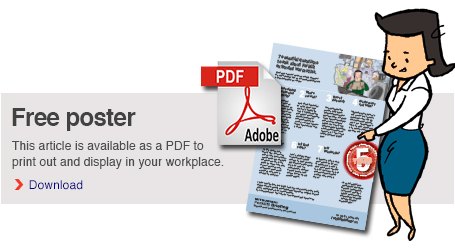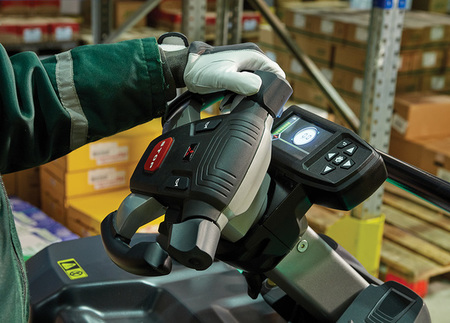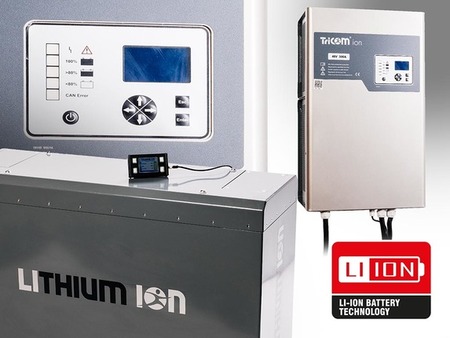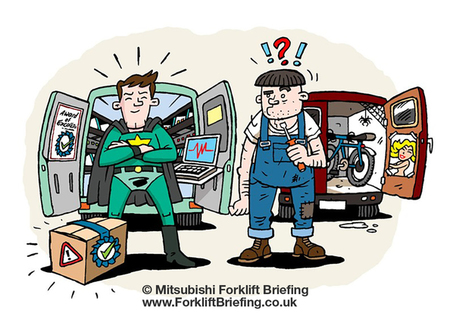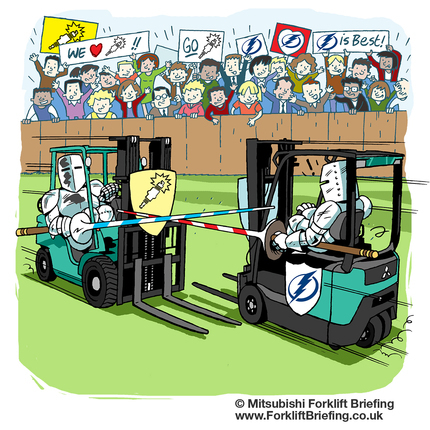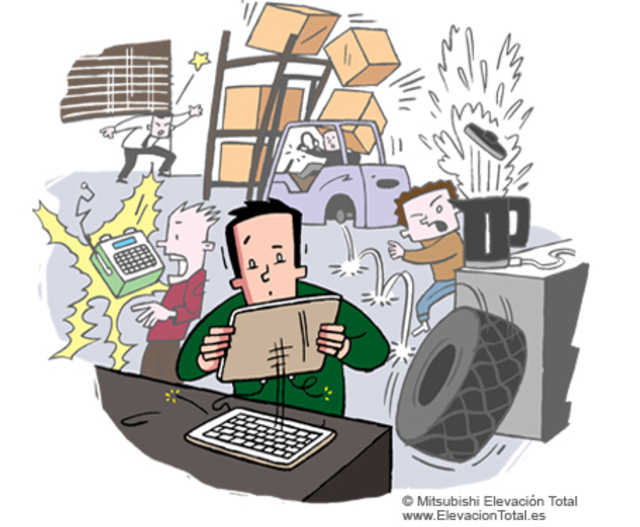
Forklift warranties: how to stack the odds in your favour
Is buying an extended warranty a sensible safeguard or a waste of cash? Here are seven essential questions to ask when making your choice.
Do you like taking risks? At some time most of us have played the lottery or placed a bet on the outcome of a sporting event. But would you do the same with your day-to-day business.

Above: Mitsubishi five year Extended Powertrain Warranty. Look closely at its terms and you'll see it includes more cover than other extended warranties – including ‘unlimited maximum claim'.
Some people compare extended warranties to taking a gamble: what are the odds of something going wrong? Does that risk justify the cost of an extended warranty? Do you take a chance or go without? Will it cover the component that goes wrong?
With a major investment, such as a forklift truck, the stakes are high. If something goes wrong and there's no warranty, the problems can escalate rapidly. You lose valuable time trying to get things sorted. Meanwhile, you're a truck down – for days, or maybe longer. The workload backs up and customers are upset. Stress levels rocket and costs soar.
So should you always take the maximum warranty your dealer offers?
It depends.
What's worse than no extended warranty?
Answer: Having a bad extended warranty – one that fails to provide the cover you expected. When this happens, you're paying out and losing out. Small print can have big implications.
The best approach is to view the extended warranty as an integral part of your forklift purchase. It could prove as important as the engine, hydraulics or the axles – so you should examine it with just as much care.
But what should you look for? This checklist should help you find the best available.
1) Who's offering the extended warranty?
Sometimes extended warranties are delivered by a third party such as an insurance company. But the best ones are underwritten by the manufacturer. This is a powerful indicator that the odds of something going wrong with your forklift are small – the manufacturer is willing to take the risk that their equipment won't let them – or you – down... It also shows they're interested in a long-term relationship with you, built upon trust and not on making a quick sale and disappearing.
 2) What's covered?
2) What's covered?
Parts should be included as well as labour. That way, you're pushing the costs and risks away from yourself, and onto the policy. All major (ie expensive) components should be covered – with an option to include batteries if the truck is electric. It's also important that cover extends to any damage to your truck that's been caused by a failure – not just the problem itself. (However, it's unlikely that any warranty will cover filters and other "wear parts".)
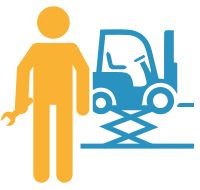 3) How's it delivered?
3) How's it delivered?
You want a policy that provides for high-spec, guaranteed manufacturer-approved parts – not cheap copies that could break after your extended warranty finishes. The cover should guarantee skilled technicians, who are authorised to work on your truck. This will result in faster (and more reliable) fixes. It's also important that workshops are knowledgeable and well stocked with parts, to avoid delays and mix-ups over the wrong components being ordered.
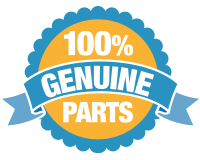 4) Are there any cost limits?
4) Are there any cost limits?
Imagine being told that you're only covered for a fraction of the final bill – and it's a big one! To avoid nasty shocks, ensure your warranty has no limit to the value of a claim or to the number of claims you can make on a single truck. Also, check there's no sliding scale where the truck's decreasing value affects the level of cover provided.
 5) HOW LONG WILL IT LAST?
5) HOW LONG WILL IT LAST?
It's fairly obvious, but a heavily-used, three or four-year-old truck is more likely to need attention than one that's only a few months old. This means the value of each year of cover is not even: every extra year on an extended warranty is worth more to you than the one before. Some extended warranties also offer extra flexibility by linking cover to how much the truck has been used (measured in thousands of hours).
 6) Is it good value?
6) Is it good value?
If you're shopping around for a forklift, don't simply compare the basic price and think about cover afterwards; add in the costs of a comprehensive extended warranty for each truck and see how the models compare again. These revised figures are more likely to represent the true cost of ownership. The price of some extended warranties may be jaw-dropping. But others may work out to be surprisingly affordable – perhaps the same as a couple of litres of engine oil per month. (Note: some dealers take out an extended warranty at the start of a rental contract. They have done the maths and know that the right cover, underwritten by a manufacturer, pays off.)
 7) Is it transferable?
7) Is it transferable?
Unless you're going to work your truck into the ground, its residual trade-in value is a key part of your ownership cost. So it's worth noting that some extended warranties terminate when a truck is sold on. So look for cover that can be transferred to a new owner – which can add a lot of resale value to your truck. View this as cash-back.
 The bottom line
The bottom line
Even for a reliable truck, a good extended warranty avoids unplanned costs, protects your business and guarantees complete peace of mind – especially after three, four or five years. So if the manufacturer won't offer the cover you need, ask yourself why.
How do warranties of Mitsubishi stack up?
- Action points
- Review your current warranty provisions
- Find out more about the Mitsubishi 5-year warranty.
- Contact your local dealer.
